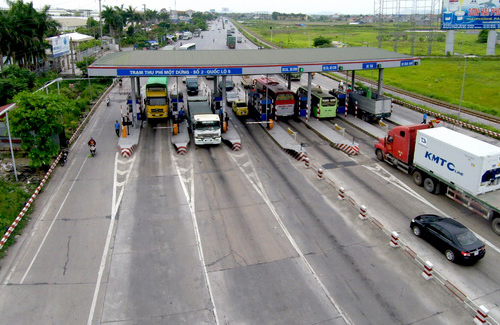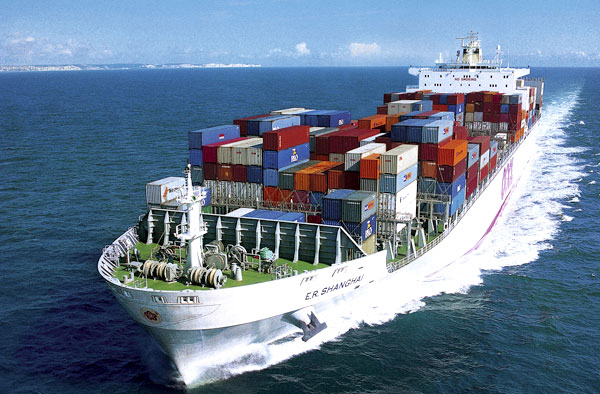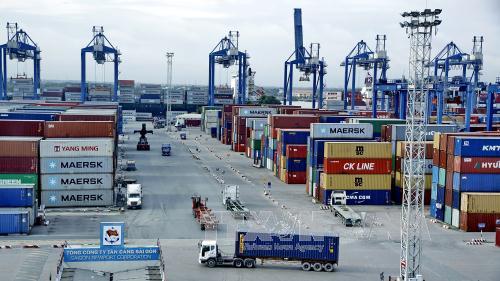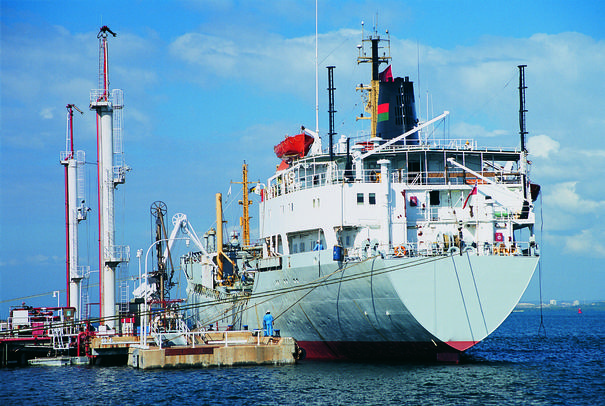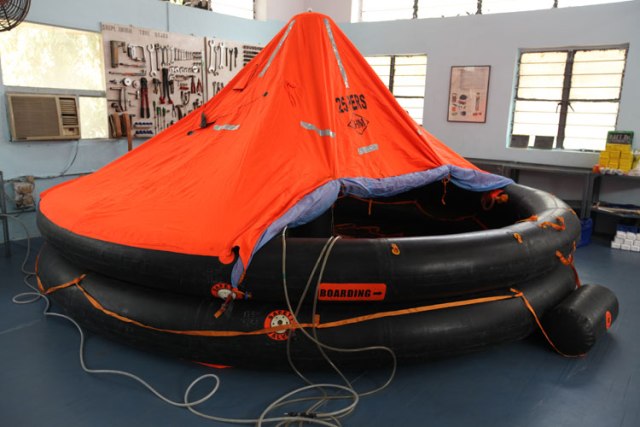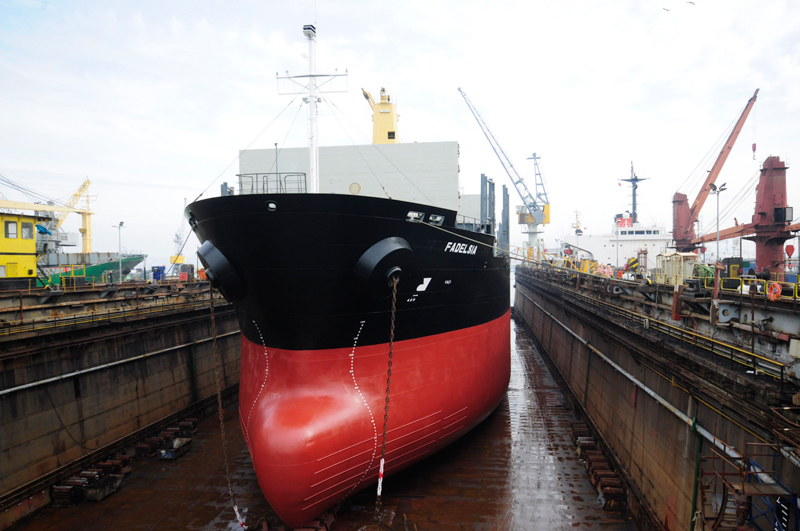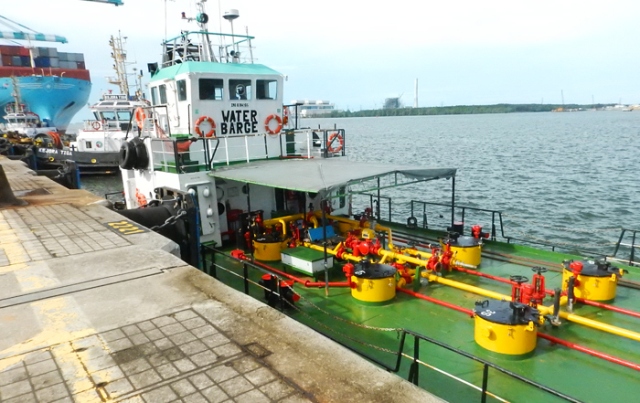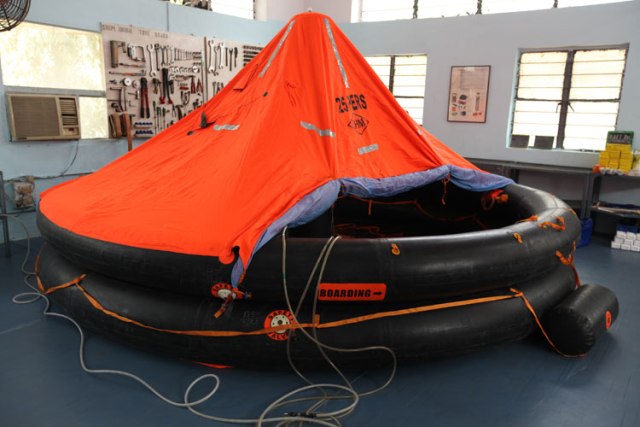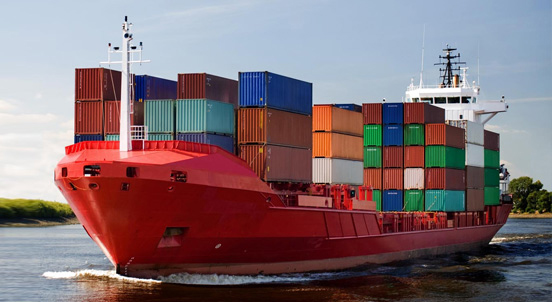Logistic services: Domestic enterprises are inferior
Cập nhật: 15-12-2017 10:40:55 | News & Events | Lượt xem: 6752
Playing an important role in the national economy, logistics services contribute positively to national GDP, reduce production costs and increase the competitiveness of goods in the market. However, in order for the logistics services of the nation to thrive, there should be a complete development system in which domestic logistics companies play a central role.
The market is still open
In the trend of integration and competition, cutting costs to increase the competitiveness of goods is an urgent requirement for most businesses. In particular, logistics activities are increasingly interested in businesses to optimize production costs.
In Vietnam, the cost of logistics services accounts for about 20% of GDP, while the contribution of economic sector only accounts for 2-3% of GDP. Targeted to 2025, the contribution of logistics services to GDP is from 8-10%, growth rate is 15 - 20%. However, this area seems to be left open to foreign investors, from ocean freight, airfreight services, consolidation services, warehouse operations to construction. the supply chain ...
Statistics of the Vietnam Logistics Service Association show that there are more than 1,300 logistics enterprises operating in the country; Of which, 80% are domestic logistics businesses but only 20% of the logistics market in Vietnam. The remaining 80% belongs to foreign-invested logistics enterprises. Many powerful logistics groups in the world have been step by step penetrating into our country such as APL Group, OOCL, Mitsui OSK Line, Maerks Logistics, NYK Logistics.
These companies not only provide a full range of services from international transportation to inland transport but also have extensive international network, strong financial and modern information technology systems. At the same time, Vietnamese logistics enterprises are only able to perform a very small part in the chain of activities, or just subcontractors for foreign logistics investors. The lack of links between logistics enterprises together is also a cause for hindering the sustainable development of domestic logistics enterprises.
According to Do Xuan Quang, former president of the Vietnam Logistics Service Association, Vietnam's logistics market is increasingly attracting domestic and foreign businesses to participate in the exciting competition. However, the number of ineffective businesses and withdrawal from the market is not small as most of the development is spontaneous, lack of direction, lack of capital, lack of capacity to compete long long.
Moreover, the services of these units are single, not highly integrated. Currently, only a few large logistics companies in Vietnam have closed service chains such as Vinatrans, Vinalinks, Sotrans ... mainly small and medium enterprises, mainly supplying services in the territory. In Vietnam, logistics services, packaging services, warehouse leasing, customs services ... Meanwhile, integrated services, international logistics are carried out by foreign logistics companies. . Vietnamese logistics enterprises are less efficient and more and more difficult to compete in this service.
According to TS. Nhan Cam Tri, University of Economics and Finance of Ho Chi Minh City. From the occupying small market share, the logistics companies in Vietnam turned to compete fiercely with the level of competition "destruction". Rather than the division of labor into specializations among logistics enterprises, the firms are still operating in a strong fashion and do all the logistics.
Therefore, the services provided are often lack of high specialization resulting in low quality, rejected by customers. In the unbalanced competition with multinational companies, while the role of the association is still unclear, the logistics companies in Vietnam are still lacking the unified direction. In addition, the current problem is the lack of professional logistics staff, trained formally from the regular school. Most logistics companies take on the role of retraining human resources through work practices.
Capacity Building
According to TS. Nhan Cam Tri, besides the increasingly competitive pressure between multinational logistics corporations is entering the Vietnam market, the logistics companies in Vietnam are also facing many opportunities for development in the future. That is the logistics activities are always associated with import-export activities that the potential of import and export of goods in Vietnam is very large. In addition, the prospect of developing retail business in Vietnam is also a great opportunity for logistics development.
Targeted to 2025, logistics will become an important service sector in the overall structure of the national economy, playing a supporting role, linking and promoting the socio-economic development of the country, the Prime Minister. The Government also issued Decision 200 / QD-TTg dated February 14, 1977 approving the action plan to improve competitiveness and develop logistics services in Vietnam.
This is considered an important legal basis to promote the development of logistics services in Vietnam in the coming time. In particular, there are specific solutions such as focusing on completing legal policies on logistics, improving logistics infrastructure, improving business capacity as well as developing logistics services market.
To promote the development and efficient exploitation of this potential market, while enhancing the competitiveness of home-based businesses, according to Ths. Nguyen Hoang Hai, Director of Service Economy Department, Ministry of Planning and Investment, Vietnam logistics enterprises need to link together, support each other to develop, increase competitiveness in the race against the business. Foreign companies. The logistics companies in Vietnam to cooperate again to be able to market a chain of logistics services overall to customers.
Accordingly, a forwarding company may associate with a company in warehousing, transportation, brokerage, aviation to form a tight linkage chain. Units in the industry can consider the possibility of merging and forming logistics service providers in groups of 3-4 units to be able to compete with foreign and multinational companies. family.
The Logistics Association should further improve its advisory role, assist its members in guiding and compensating staff regularly, and having a say in the government, management and planning agencies. as well as building logistics facilities in Vietnam.
Project
Hot News
-

-
''Bán khẩu trang số lượng lớn giá 80k''
Updated 04/02/2020


